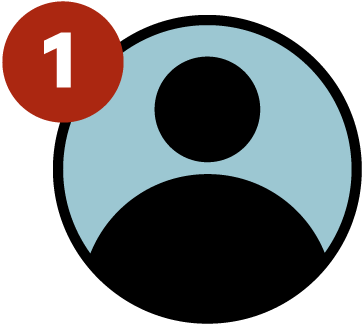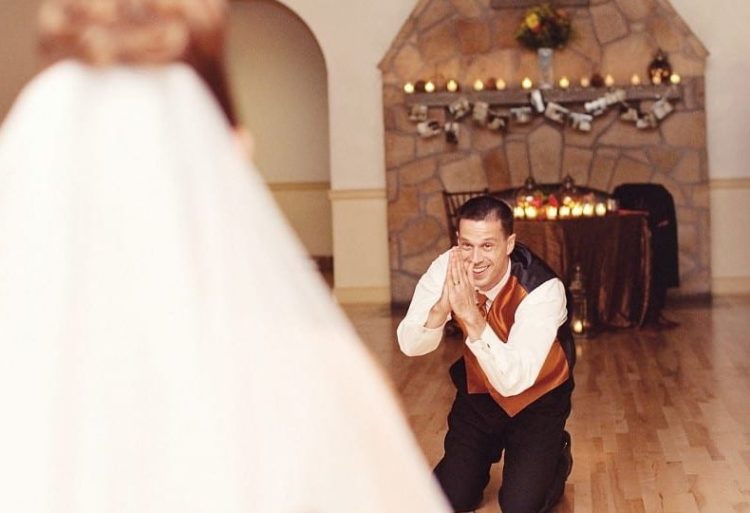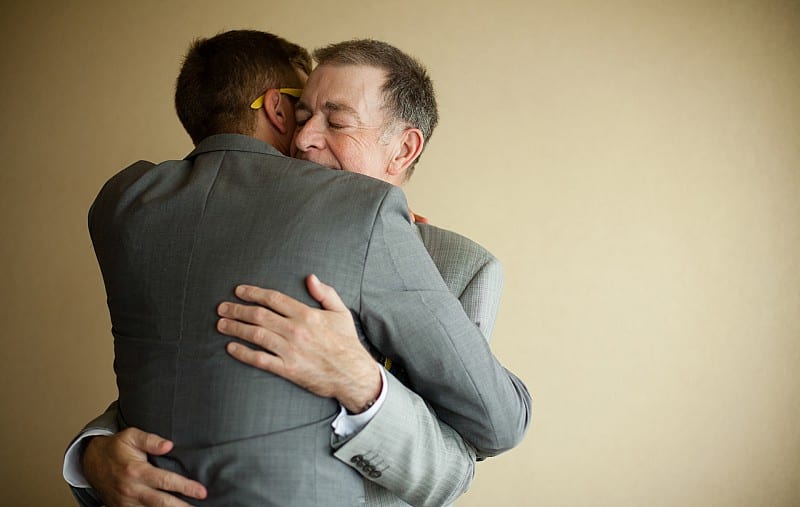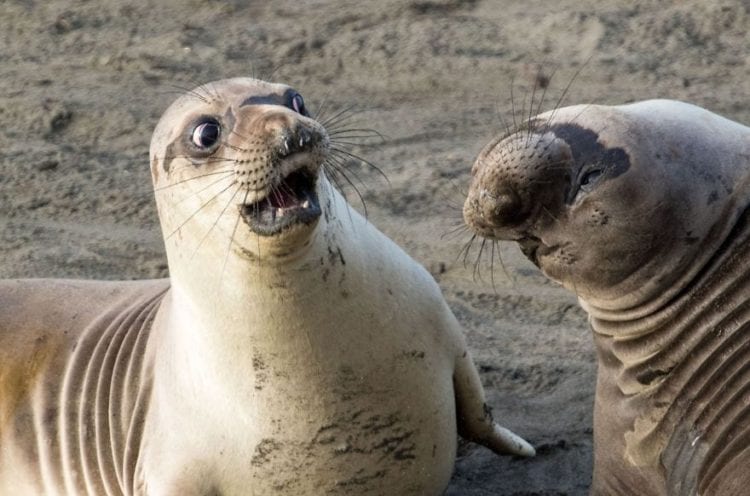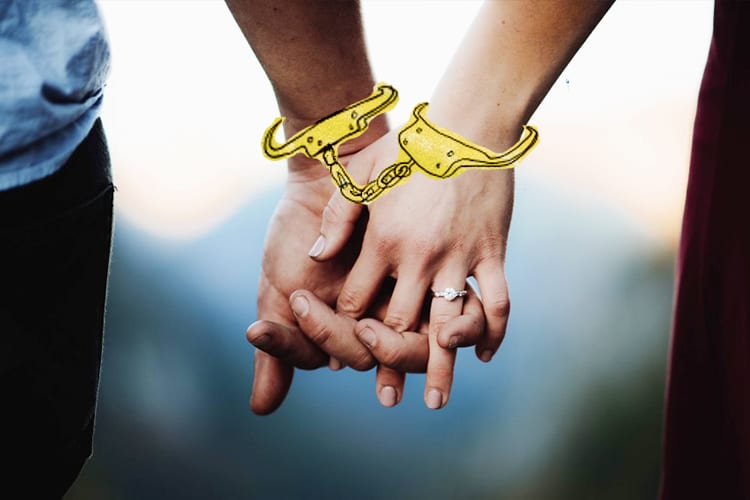
Winter has a weird way of reminding us that we’re just animals. Because it’s still socially unacceptable to fully slip into a hibernation coma from late November into early April, most of us just go about our regular routines when things get cold and dark. We pack on the pounds eating holiday cookies, our bodies slow down, and we start to take stock of the people orbiting around us.
Relationship experts call that last bit “cuffing season,” or the period of the year when people are drawn to monogamy. That’s not a scientific concept, though. It’s just a colloquial term that pop culture has applied to the rhythms of sexual desire and the changing of the seasons. Cuffing season does make sense on paper: most of us stop playing the field when winter hits, and we settle down with a primary partner who can binge TV with us. We need someone through the winter to attend holiday parties with us, visit our families for awkward dinners, and share that chaste, traditional New Year’s Eve kiss.
The Science Behind Cuffing
So, if cuffing season actually exists, it’s likely a combination of factors. Those of us who live in geographic areas where winter hits harder do tend to slow down physically. But it’s not just the weather or the time change. Culturally, we tend to focus on activities from November to April that benefit people in couples. We eschew beach parties for intimate gatherings, and everything from movies in theaters to ads in the subway tell us to reflect, buy things for our loved ones, and make grand gestures of affection. That all tracks with brain chemistry, as we tend to produce less serotonin during the winter months.
So what do we do when our brains are producing less happy juice? Well, we tend to pursue those warm fuzzies elsewhere. Winter has long been the season when most men pop the question. 19 percent of all proposals in the United States happen in December, and 7 out of 10 of the most popular days to get engaged are in December.
Does cuffing season apply to single people?
Cuffing season is not just a phenomenon limited to married folks. When the temperature drops, single people get thirsty for monogamy too, and they go to the internet to find it. People are more likely to change their Facebook relationship status in the winter, and we tend to Google pornography and dating services more frequently. In 2013, a study conducted at Villanova University found a definite uptick in online dating platform use during winter months, particularly January.
You need to be careful with all these fluctuating brain chemicals and reactions to the environment, especially when you’re negotiating romantic relationships. “The feelings of loneliness and sadness that get brought up for a lot of people around this time of year can make you search for things that make you feel good in the moment,” Rachel Sussman, LCSW, told Refinery29. “But that’s never the right path forward.”
If you want to lock it down with your honey during cuffing season, you need to figure out your options before Daylight Savings Time. According to relationship experts, that pre-period is called “fielding season,” and, like cuffing season, it’s caused by its own cluster of psychological and cultural factors.
Before cuffing season comes fielding season
Although people tend to show more interest in online dating and pornography when it’s cold, we tend to actually go on more physical dates during the warmer months. That makes sense in a few ways; it’s more pleasant to engage in outdoor activities when you’re not freezing your ass off, and because there’s less societal pressure to buy your girlfriend a rock in July, people can relax and get to know each other.
Urban Dictionary, a slang wiki, defines fielding season as a period of socialization from “late May to early September.” There’s not a ton of hyper-specific data related to dating patterns in these summer months, but it’s easy to tell where our priorities lie as a society when you look at seasonal media. Summer is typically the optimal season for blockbuster releases, party anthems, and music festivals. While it’s fun to have a partner along for the ride, drinking beer on the beach isn’t as momentous an occasion as, say, the company holiday party or ice skating under the Rockefeller Center tree.
Regardless of whether or not you buy the existence of cuffing season, or “fielding season,” it does benefit you to date around and weigh out your options before you commit or “cuff” yourself to another person. It’s not often explored in cuffing season conversations, but the holiday season ends around Valentine’s Day, aka the relationship lightning rod of holidays. If you find a partner suitable to get you through cuffing season, but you’re having doubts after New Year’s, it’s in everyone’s best interest to get your shit together and decide on a plan before February rolls around.
Like “cuffing season” and “fielding season,” breaking up with someone far in advance of Valentine’s Day isn’t exactly science. It’s just a common understanding born out of patterns in brain chemistry, society, and modern culture. After all, you shouldn’t need a clinical study to tell you not to act like a dick.

